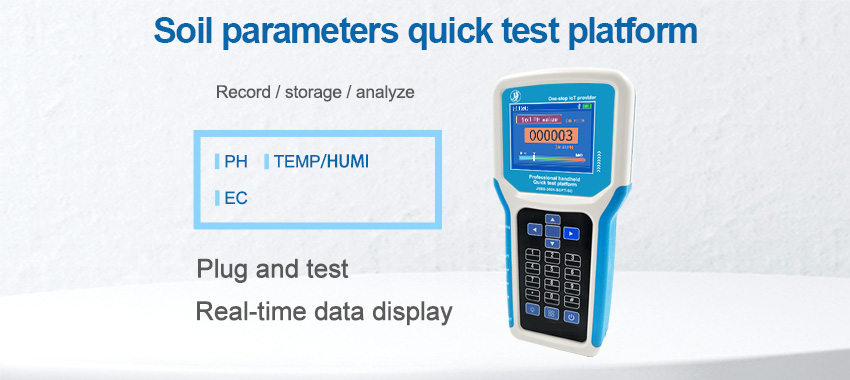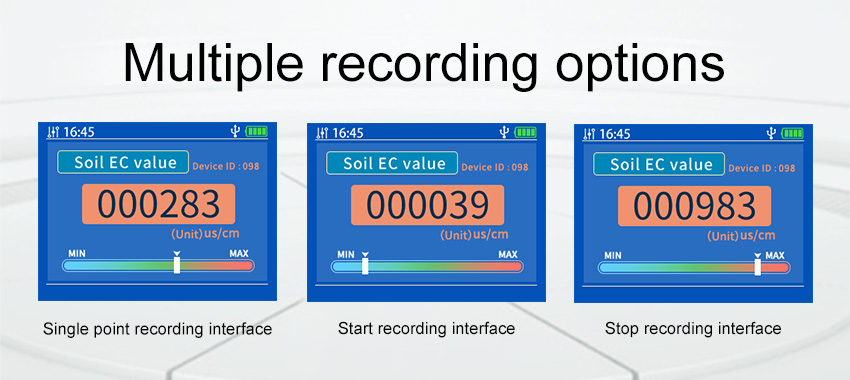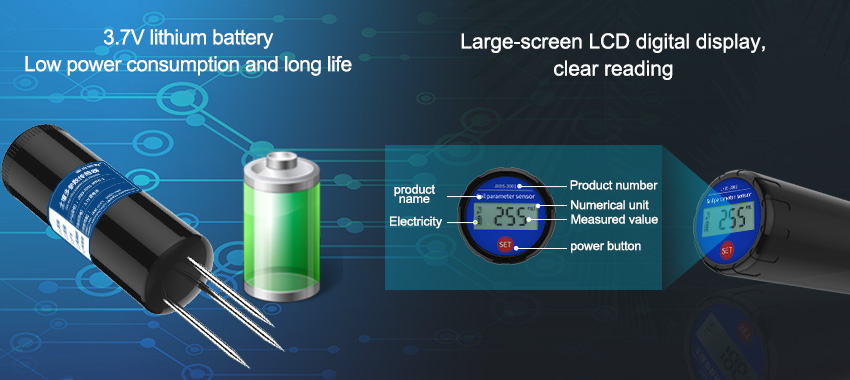The agricultural industry plays a vital role in feeding the world's growing population. As farmers face increasing pressure to improve crop productivity, understanding and managing soil conditions becomes paramount. In recent years, soil sensors have emerged as valuable tools in optimizing crop yield. This article explores the power of soil sensors in providing real-time data on soil health, moisture content, nutrient levels, and temperature, enabling farmers to make informed decisions and enhance agricultural productivity.
Real-time Monitoring of Soil Health:
Soil health is a crucial factor in determining crop productivity. Soil sensors allow farmers to monitor the overall health and fertility of their fields in real-time. These sensors measure important parameters such as pH levels, organic matter content, and microbial activity. By collecting continuous data, farmers gain insights into soil nutrient availability, microbial activity, and soil structure. This information enables them to identify potential issues and take appropriate measures, such as adjusting nutrient applications or implementing soil amendments, to optimize soil health and promote robust plant growth.

Monitoring and Managing Soil Moisture:
Water is a vital resource for plant growth, and efficient irrigation practices are crucial for maximizing crop yield. Soil sensors provide accurate and timely information about soil moisture levels, helping farmers determine when and how much water to apply to their crops. With the ability to monitor soil moisture at different depths, these sensors enable farmers to optimize irrigation schedules, preventing under or over-watering. By maintaining optimal soil moisture levels, plants can access water efficiently, reducing water stress and improving overall crop health.
Precision Nutrient Management:
Proper nutrient management is essential for achieving optimal crop yield while minimizing environmental impact. Soil sensors facilitate precision nutrient management by measuring and monitoring nutrient levels in the soil. These sensors can detect key nutrients such as nitrogen, phosphorus, and potassium. By analyzing the data provided by soil sensors, farmers can tailor fertilizer applications based on the specific nutrient requirements of their crops. Precision nutrient management ensures that plants receive adequate nutrition, minimizing nutrient deficiencies or excesses that can hinder growth and reduce yield.
Optimizing Soil Temperature Conditions:
Soil temperature plays a significant role in determining seed germination, root development, and overall plant growth. Soil sensors equipped with temperature probes allow farmers to monitor soil temperatures at different depths throughout their fields. This information helps farmers make informed decisions regarding planting dates, crop selection, and other management practices influenced by soil temperature conditions. By optimizing soil temperature, farmers can create favorable growing conditions and maximize crop yield potential.
Data-driven Decision Making:
One of the key advantages of soil sensors is the ability to collect real-time data and translate it into actionable insights. By continuously monitoring soil parameters, farmers have a comprehensive understanding of their fields' conditions. This data empowers them to make informed decisions regarding irrigation, fertilization, pest management, and other critical aspects of crop production. With the help of soil sensors, farmers can adopt a proactive approach, responding promptly to changes in soil conditions before they impact crop health and yield.

Integration with Precision Agriculture Technologies:
Soil sensors complement other precision agriculture technologies, such as GPS-guided machinery and variable rate application systems. By integrating soil sensor data with these technologies, farmers can create site-specific management zones within their fields. This allows them to tailor inputs such as irrigation and fertilizers to match the specific needs of different areas, maximizing efficiency and minimizing waste. The seamless integration of soil sensors with precision agriculture technologies enhances overall farm productivity and sustainability.
Environmental Benefits:
In addition to optimizing crop yield, soil sensors also contribute to environmental sustainability. By providing accurate measurements of soil parameters, these sensors enable farmers to implement precise nutrient and water management practices. By avoiding excessive nutrient applications and optimizing irrigation, farmers can minimize nutrient runoff and water pollution. Furthermore, optimized crop yield from efficient soil management reduces the need for expanding agricultural land, protecting natural ecosystems and biodiversity.
Conclusion:
Soil sensors have revolutionized the way farmers manage their crops by providing real-time data on soil parameters critical to plant growth. The power of soil sensors lies in their abil







